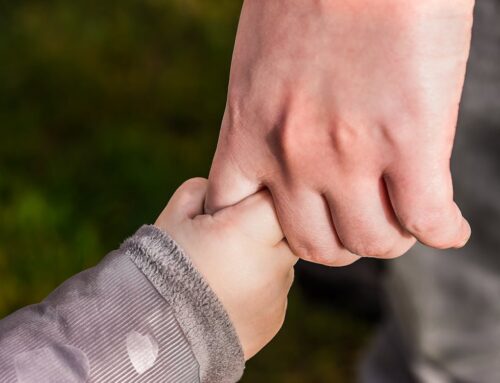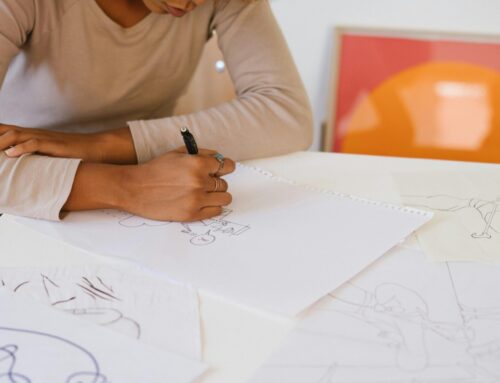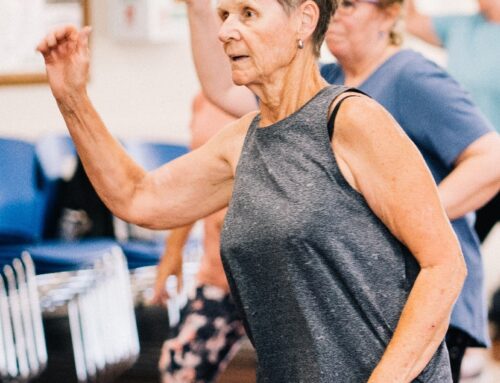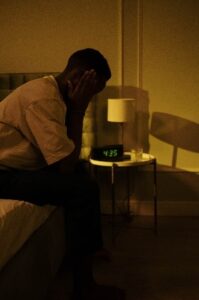 You want nothing more than to come home from work and crawl into bed. You’ve practically been dreaming about it since you woke up this morning.
You want nothing more than to come home from work and crawl into bed. You’ve practically been dreaming about it since you woke up this morning.
This week has felt long. You’re exhausted. And to be honest, you haven’t been sleeping that well.
When you finally get home from work, you cook yourself dinner, shower, and start to get ready for bed.
You run through your list of to-dos before bed.
Teeth brushed. Check.
Face washed. Check.
Pajamas on. Check.
Alarm set. Check.
Lights off. Check.
You crawl into bed, pull the covers up to your chin, and plug in your phone. You close your eyes and you wait until sleep takes over your body.
But it doesn’t happen.
Instead, your mind starts racing. You can’t stop thinking about events that took place during your day, from years ago, and even events that haven’t even occurred yet. Your heartbeat quickens. You’re antsy and restless. Instead of your eyes greeting your eyelids and wandering off to a peaceful sleep, you’re met with anxiety instead.
What makes anxiety worse at night?
Fewer Immediate Distractions
The things you do during the day may distract you from your anxiety. Whether you go to school, stay at home with your kids, run your own business, or work in an office each day, the assignments, projects, and asks you work on each day can help prevent your mind from focusing in on your anxiety.
This means at night when you’re trying to calm your mind, relax, and go to bed, nothing is distracting you or your mind from your anxiety taking over. This means that you’re more likely to actively think about the things that bring you anxiety.
Caffeine Consumption
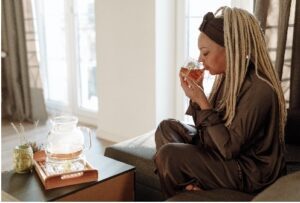 Whether you choose to stick to only one cup of coffee or choose to have a few cups during the day, caffeine can lead to increased anxiety and difficulty falling asleep at night.
Whether you choose to stick to only one cup of coffee or choose to have a few cups during the day, caffeine can lead to increased anxiety and difficulty falling asleep at night.
If you’re a multiple cups of coffee a day type of person, try swapping out one of your normal coffees for a decaffeinated coffee instead, especially if you’re consuming coffee mid-day. Another great option to help ease your anxiety at night and fall asleep a little faster is to swap your coffee for tea. Most teas have a smaller amount of caffeine per serving, so this is also a great way to help ease anxiety at night.
Anxiety and Fear About the Future
Anxiety for many people usually stems from worrying about past or future events that haven’t occurred yet.
Many individuals may be preoccupied thinking about what may happen when they wake up in the morning. They may start to go through different situations or worst-case scenarios. “What if I sleep through my alarm? What if I don’t meet that deadline? What if my car breaks down?”
Some individuals may even start to worry about how they’re going to feel the next day due to not being able to fall asleep or stay asleep throughout the night. They’ll start to think about their sleep deprivation, how tired they’ll be, and how that will affect their day.
Treatment Options

Therapy is a great treatment option for individuals suffering from nighttime anxiety. If you notice you’re having difficulty falling asleep at night and the strategies you tried on your own aren’t working, it may be time to reach out for additional support.
Reach out to me today to set up a short phone consultation. We can talk about options, next steps, or even finding the right match for you if not myself.
For more information about anxiety therapy, click here.

